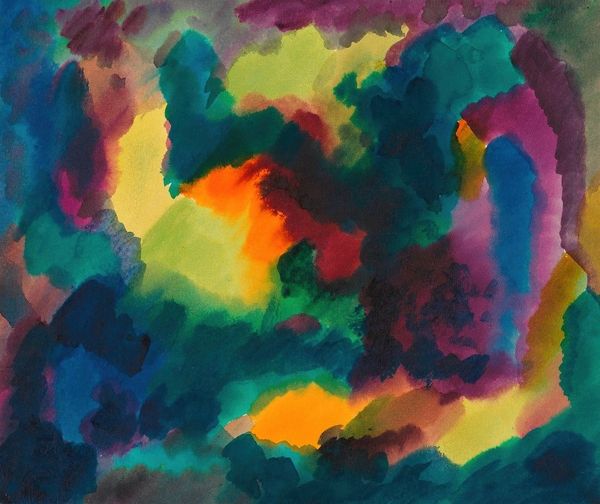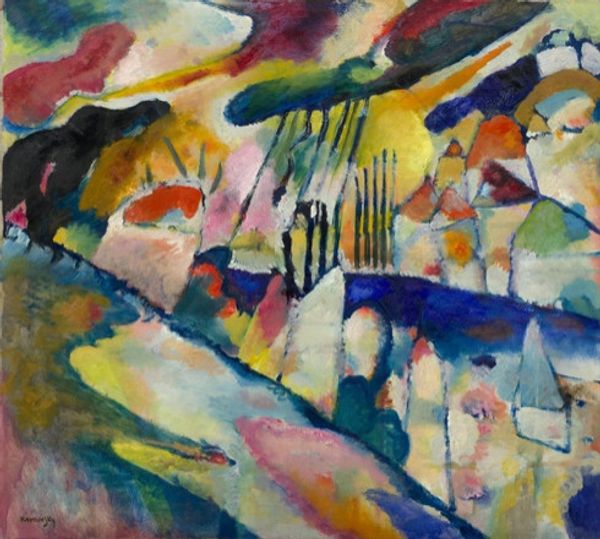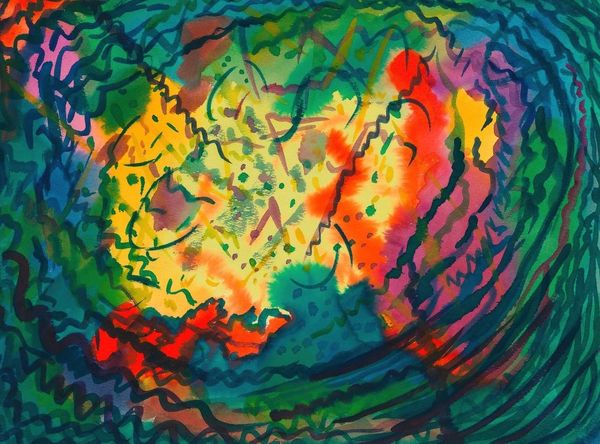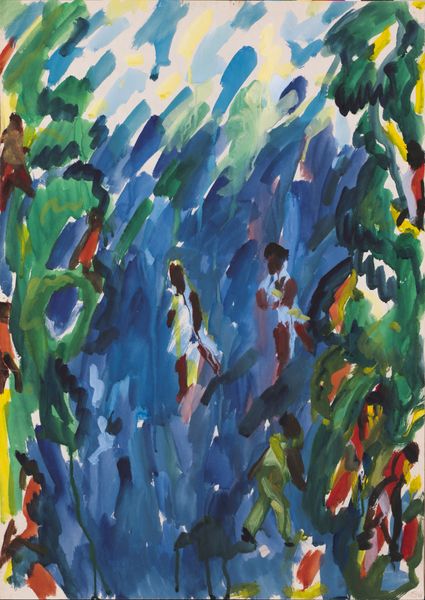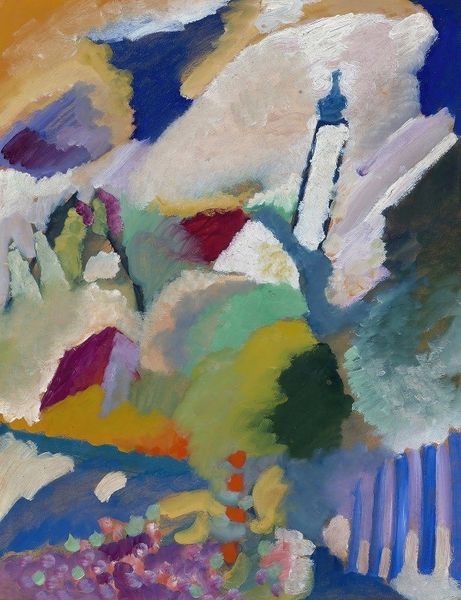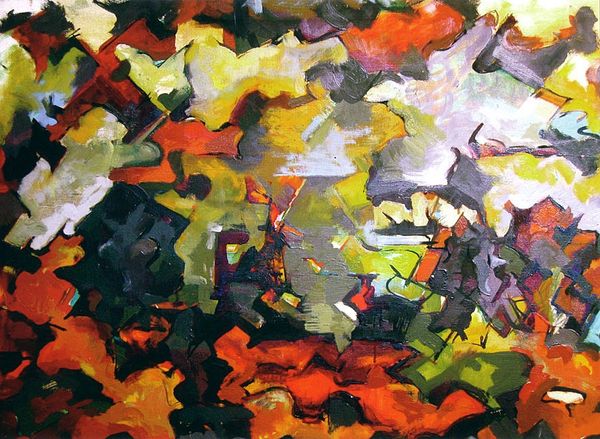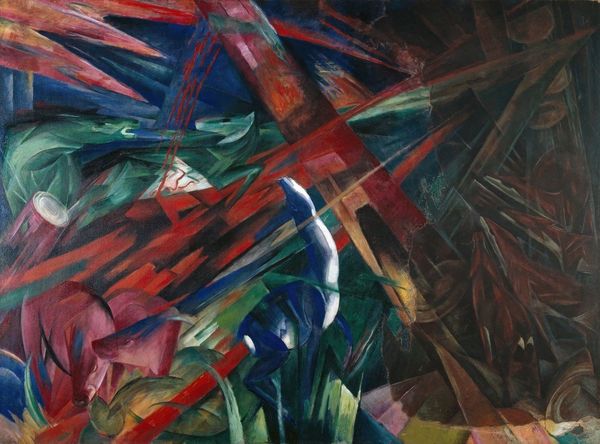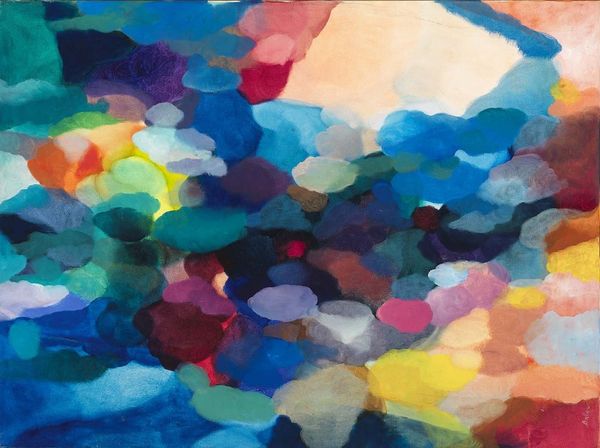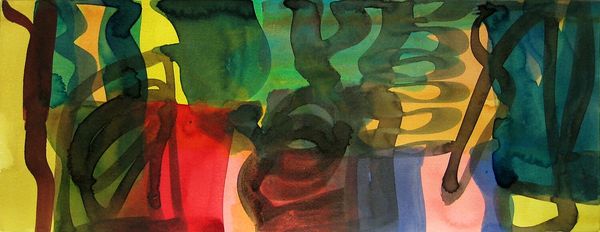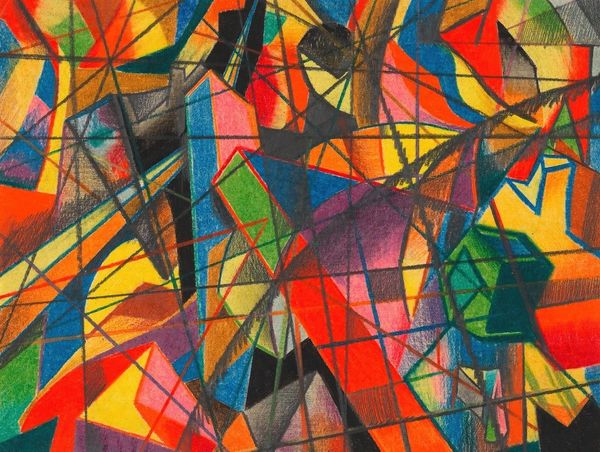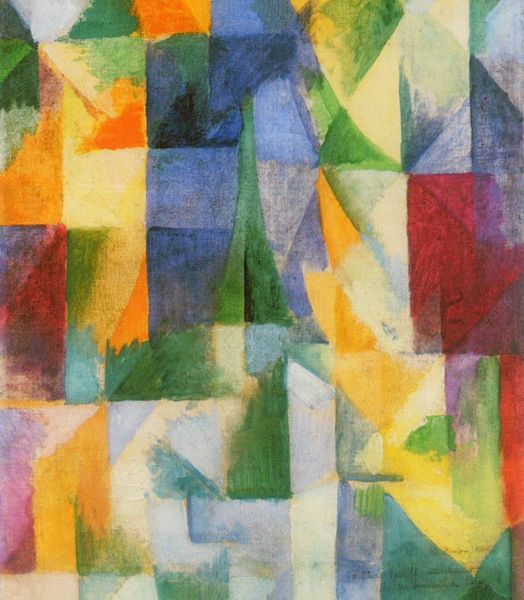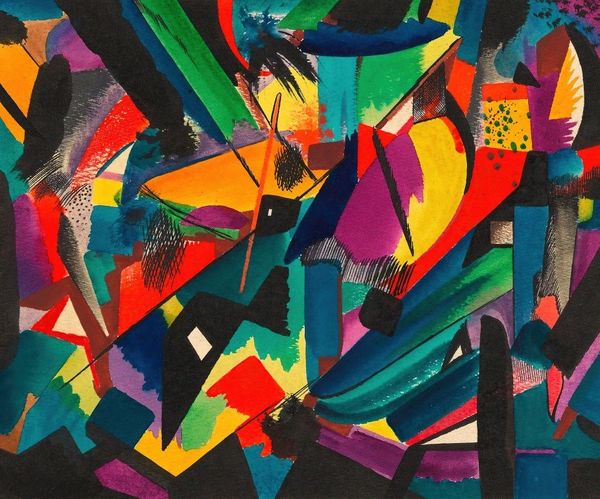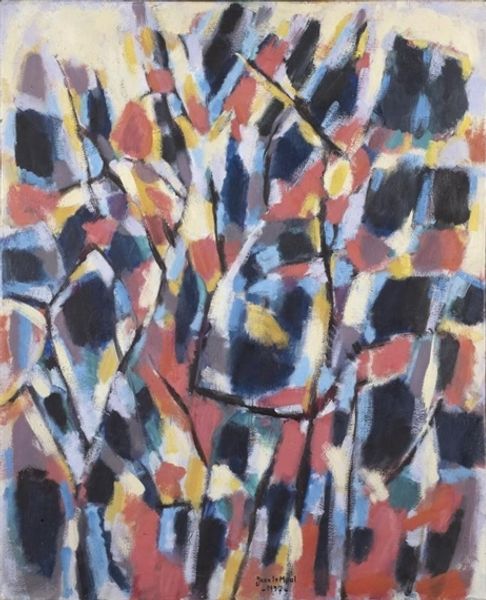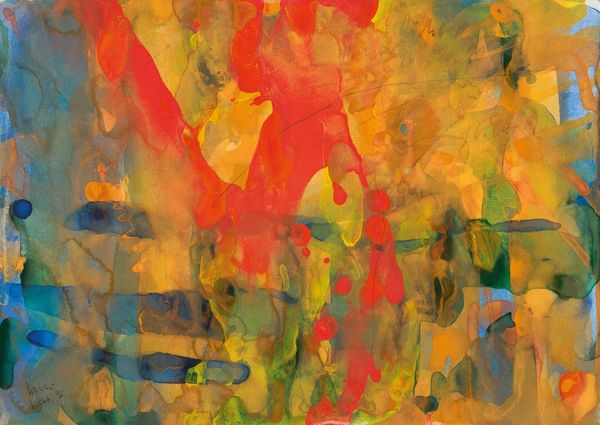
watercolor
#
non-objective-art
#
watercolor
#
expressionism
#
abstraction
Copyright: Public Domain: Artvee
Curator: Ah, "Zersetzung II," a watercolor created around 1928 by Karl Wiener. It immediately throws you into a vortex of swirling greens. Editor: My gut reaction is...chaos! Delicious, controlled chaos, but chaos nonetheless. It’s like staring into the heart of an exploding jewel, all vivid colors contained by a very definite…edge, almost. Curator: “Zersetzung,” interestingly, translates roughly to "decomposition." Do you see that reflected here, a sense of disintegration? Wiener was navigating a turbulent period, both personally and historically, with the rise of nationalist ideologies in the interwar years in Europe. Editor: Absolutely. The orange seems like pockets of intense energy resisting this…green implosion. I see it as the individual, those vibrant splashes of self, trying to hold form against the encroaching force of societal…yeah, decomposition is exactly right. A psychological struggle, laid bare with such deceptively simple watercolors. Curator: There’s a real tension here, for sure, and Wiener seems to tap into a universal anxiety – the fragility of the self. But in a wider context, the symbol for that anxiety can be attributed to national identity in those times. Editor: See, that’s fascinating, to consider national identity reflected in these intense color relationships. The blues…a creeping sadness maybe, permeating everything. I get lost in this! But then, these non-objective works can mean so many things. Curator: Well, that's the magic of abstraction, isn't it? Allowing viewers to project their own interpretations, drawing connections to shared experiences or memories that linger in the collective consciousness. The title invites us into the symbolic meanings. Editor: It does, doesn’t it? “Decomposition"...on canvas...in my head. Wiener was really on to something here. Thank you. It certainly resonated. Curator: Thank you. I concur; his vision reveals just how potent seemingly formless expressions can reflect enduring truths about the self and the societies we live in.
Comments
No comments
Be the first to comment and join the conversation on the ultimate creative platform.
